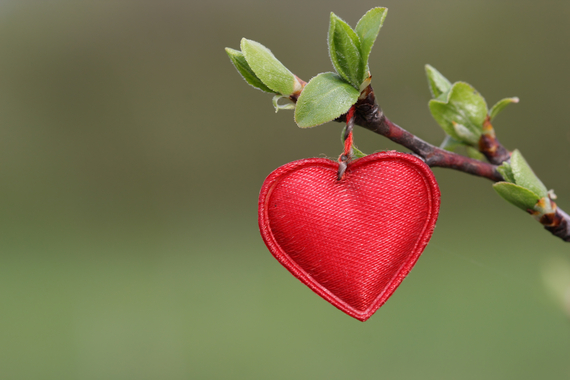Loss is a part of life, but in the West we're generally not good at experiencing and expressing grief. Sobonfu Somé, one of today's top voices of African spirituality, recently shared lessons on grief from the Dagara tradition of Burkina Faso at a talk in Asheville, North Carolina. Here, Omega shares our top takeaways.
Grief Is Not Bad
"Time heals all wounds" is the advice often given to someone who has just lost a loved one or ended a relationship. While time and space will help heal, it is also good to find ways to express our grief and find support.
Sobonfu Somé, whose name means "keeper of ritual," said grief is not bad. It's the "lack of expression of our grief" that can cause us trouble.
But most of us avoid talking about pain. Think of the last time someone asked, "How are you?" The go-to response is usually "Fine." or "Good, how are you?" Somé observed that in the West we usually say what will get others to leave us alone, rather than saying what's truly on our mind or in our heart.
Yet we have a lot to grieve over, including loss, difficult relationships, inherited emotional pain from our families, and global issues like war, poverty, or the state of the environment. Pain and grief can accumulate and block our creativity, leaving us feeling less joy and less desire to connect with others. It can also negatively impact our physical health.
Somé explained that in her culture they regularly practice "grief rituals" in a soul-invigorating ceremony that "healing and preparing the mind, body, spirit, and soul to receive the spirituality that is all around us."
Try this resource for establishing your own grief ritual.
Learn to Talk & Listen
Somé suggested we start the process of grieving by learning how to communicate our feelings.
"We have not been given language to help us say what we are going through," she said. "We don't know how to say, 'I need help!' When we see a person who hasn't smiled in a while, we need to ask, 'What's going on for them?' When we know a person is a great artist, we need to ask 'Why haven't they created in a while?' What does it take to say, 'I am in pain. Can we talk about this pain?'"
Help Others
No human should be allowed to carry their grief on their own, said Somé. We must learn to show up for ourselves, and then learn how to hold space for others.
"Showing up is at least 60 percent of the work," she said. "Being able to hold space for someone else is important. It helps us look at the pain we hide."
If you don't know what to do, she suggests to keep it simple. Make them some food. Do their laundry. Or just sit quietly and listen to someone express their feelings.
"If one person can totally show up, it can make all the difference. It gives an extra eye to the pain."
Welcome the Tears
"Tears have a reason to be here," Somé said. "A tear is a prayer. It's also a way to say yes to life. It's the other side of joy. If you can't express your grief, you can't be genuinely happy. Tears enable us to be alive."
When someone is grieving, they are seeking healing. Grief is way to release and cleanse whatever is no longer needed within the self, and we can welcome tears as a part of that process.
"Don't ignore the pain that's aching you," Somé said. "Give it a voice. Seek help. Enlist other people. Acknowledge that you have the grief. Grief is good medicine!"
Explore more in the category of Health & Healing.
© 2016 Omega Institute for Holistic Studies, Inc. All rights reserved.
This post is part of Common Grief, a Healthy Living editorial initiative. Grief is an inevitable part of life, but that doesn't make navigating it any easier. The deep sorrow that accompanies the death of a loved one, the end of a marriage or even moving far away from home, is real. But while grief is universal, we all grieve differently. So we started Common Grief to help learn from each other. Let's talk about living with loss. If you have a story you'd like to share, email us at strongertogether@huffingtonpost.com.
